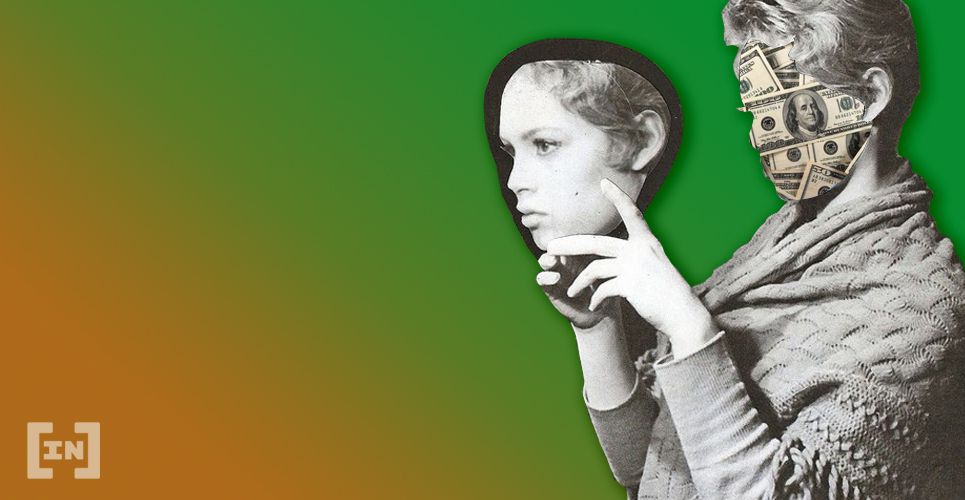The International Monetary Fund (IMF) produced a dark economic forecast for the remainder of 2020. It predicts that we will see an aggressive V-shaped recovery.
According to IMF Managing Director Kristalina Georgieva, 2020 would see the worst crisis since the 1930s.
However, according to the IMF’s projections, it would also be the shortest depression ever. The international body is expecting a V-shaped recovery the likes of which have never been seen.
A V-Shaped Economic Recovery
In its report, the IMF said that it is ‘hoping for a V-shaped recovery’ to bounce us back from 2020 lows. It predicts that the entire world economy will contract by -3 percent in 2020, only to jump back by 5.8 percent in 2021.If this ends up playing out, this would be a strange scenario: both the worst economic outlook since the Great Depression and also the shortest depression ever. The prediction seems to be optimistic, at first glance. It is based on the economy simply restarting at full capacity like it was before the pandemic. However, consumer spending could lag for some time. It all depends on how long lockdown measures goes on for. QuantumEconomics founder Mati Greenspan told BeInCrypto that the prediction “seems quite optimistic, but it would be really nice if they’re right.” The World Trade Organization (WTO) has a similarly grim outlook: world trade is expected to drop somewhere between 13-32 percent this year. However, unlike the IMF, the WTO did not feel it was appropriate to make predictions for 2021 or 2022.The IMF is bullish on GDP and expecting a very sharp recovery. pic.twitter.com/m2j5oACW6P
— Mati.Quantum (@MatiGreenspan) April 20, 2020
The Deeper Structural Issues
While it is entirely possible that the economy rebounds, we cannot forget that global investment was already anemic before COVID-19. The rebound will have issues maintaining momentum, even assuming everything plays out perfectly. However, the fear now is not on short-term recoveries but on the long-term. The debt-financing that has been responsible for covering the costs of lockdowns will have to be accounted for. The Federal Reserve has printed trillions of dollars to keep financial markets afloat. The printing spree even caused one Bloomberg writer to begrudgingly admit that “money is losing its meaning.” Others have been skeptical of the ‘rebound’ entirely. One analyst warned that reopening the economy could be a ‘sell the news’ event due to low profitability. For now, financial markets have calmed down. Bitcoin, also, has found some balance. The leading cryptocurrency is back to normal volatility levels after a bloodbath in March. However, analysts are split now: either the worst could be behind us or this is merely a false sense of assurance before the storm.
For now, financial markets have calmed down. Bitcoin, also, has found some balance. The leading cryptocurrency is back to normal volatility levels after a bloodbath in March. However, analysts are split now: either the worst could be behind us or this is merely a false sense of assurance before the storm.
Top crypto platforms in the US
Disclaimer
In adherence to the Trust Project guidelines, BeInCrypto is committed to unbiased, transparent reporting. This news article aims to provide accurate, timely information. However, readers are advised to verify facts independently and consult with a professional before making any decisions based on this content. Please note that our Terms and Conditions, Privacy Policy, and Disclaimers have been updated.

Advertorial
Advertorial is the universal author name for all the sponsored content provided by BeInCrypto partners. Therefore, these articles, created by third parties for promotional purposes, may not align with BeInCrypto views or opinion. Although we make efforts to verify the credibility of featured projects, these pieces are intended for advertising and should not be regarded as financial advice. Readers are encouraged to conduct independent research (DYOR) and exercise caution. Decisions based on...
Advertorial is the universal author name for all the sponsored content provided by BeInCrypto partners. Therefore, these articles, created by third parties for promotional purposes, may not align with BeInCrypto views or opinion. Although we make efforts to verify the credibility of featured projects, these pieces are intended for advertising and should not be regarded as financial advice. Readers are encouraged to conduct independent research (DYOR) and exercise caution. Decisions based on...
READ FULL BIO
Sponsored
Sponsored
